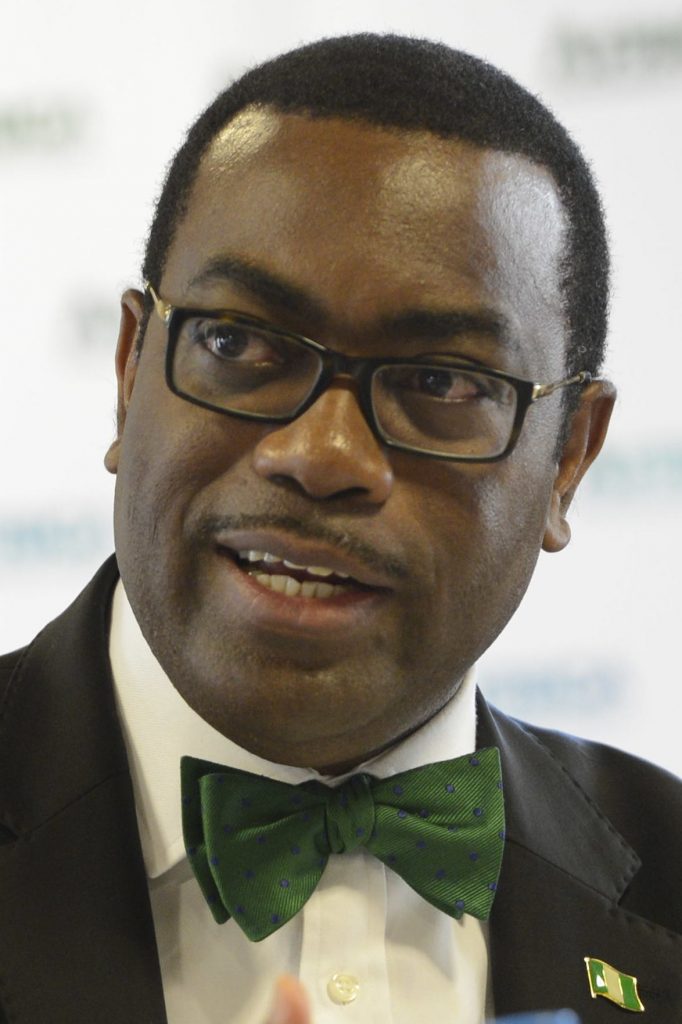
By Lucy Ogalue
”The global development boat is leaking and the consequences will be devastating, unless we seal the leaking areas”, warns the African Development Bank President, Dr Akinwumi Adesina.
Adesina made this known in a statement during the 2023 Kofi Annan Eminent Speakers’ Lecture.
He said the challenges of our world today, from the COVID -19 pandemic, climate change, rising debt, food insecurity, and conflicts, were keeping the lid on development globally.
He said at the top of the leakage was climate change which posed existential risks for the world.
”We must do all we can to keep global warming to no more than 1.5 degree Celsius. We need innovations to power the world better with renewable energy.
”There is too much hunger in the world. It is not acceptable that over 2.3 billion people in the world go hungry. God did not create stomachs to go empty.
”He created them to be filled. There must be a hunger-free world,” he said
According to Adesina, the inability to cope with global health pandemics. The Covid-19 pandemic has taught us how important it is to have global pandemic preparedness.
He said it had also taught us to ensure no one was left behind in access to affordable health care. ”After all, all lives matter, for the rich and poor.”
He quoted the UN Secretary-General Antonio Guterres, as saying that the world is off-course on meeting the Sustainable Development Goals (SDGs), our collective agreement to shape a better world for all.
According to the AfDB president, the challenge facing the world is not lack of resources.
He said the challenge was that the resources are highly concentrated in developed countries, with few extremely rich, while the world’s development boat is leaking.
Adesina said: ”The international community has a critical role to play to change this, yet as Kofi Annan once said.
“The international community allows nearly three billion people, almost half of all humanity to subsist on two dollars or less a day in a world of unprecedented wealth.”
According to the AfDB boss, development financing needs in Africa is huge and widening.
He said the AfDB estimates that Africa faced a financing gap of 1.2 trillion dollars through 2030 to finance the SDGs and adapt to climate change.
”For example, the financing requirements for Africa’s Nationally Determined Contributions under the Paris climate agreement are estimated at 277 billion dollars annually until 2030.
”Current flows of climate finance to Africa are far short of that, at just USD 30 billion in 2019 to 2020.
”Much of the available climate finance is concentrated in a few developed countries, and very little is available to support adaptation, which is Africa’s most urgent need ” he said.
Adesina said there was no doubt that the global financial architecture was failing development in the world as it faced multiple global challenges.
According to him, the global financial architecture needs to be reformed and transformed to tackle more effectively global challenges and accelerate SDGs achievement.
” We must ensure equal opportunities for all. Regardless of ones’ economic, social, or racial background, we must create a level playing field for a more just, fair, and equitable world.
”Multilateral Development Banks(MDBs) play a unique role of tackling global development challenges.
”By their nature, they are positioned to respond to global economic shocks, finance the needs of SDGs, address rising fragility, and mobilise funding required to address climate change.
”It is estimated that the new global challenges will require a tripling of financing from MDBs, a doubling of bilateral aid, a significant increase in concessional lending and a massive rise in the flow of private capital,”Adesina said.
He said the clarion call was therefore, to move from “billions of dollars’ to ’trillion of dollars”.
”The G20 has called for significantly raising the ambition of the multilateral development banks, expanding resources for them to do more, improving their ability to take risk.
”Optimising their balance sheets, deploying more financial innovations, and leveraging the private sector.
”Critically, they need to work collectively as a system to effectively deploy knowledge, risk mitigation instruments and concessional financing at scale.
”That is why we have selected the theme of the 2023 Kofi Annan Eminent Speakers’ Lecture to be, “The changing global finance architecture: Implications for multilateral development Banks post Covid,”Adesina said. (NAN)




